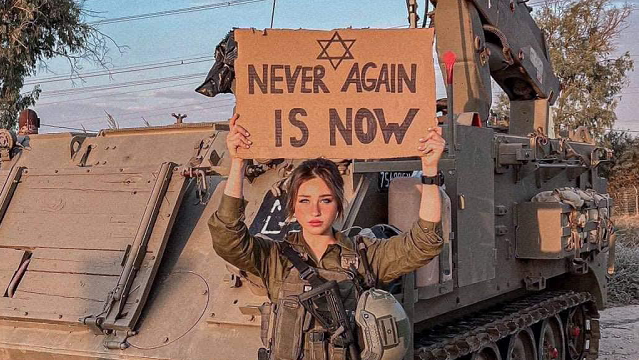Jewish Unity During Times of Crisis
By Matthew Hausman, J.D.

For perhaps the first time since the Yom Kippur War, Jews from across the political spectrum were able to find common ground.
“Who is a Jew?” may be considered a politically charged question, but it actually has an easy answer. Simply stated, a Jew is defined by Halakha (Jewish law) as one born of a Jewish mother or who joins the Jewish people in accordance with Jewish law. That is the baseline accepted by everyone – it is neither vague nor ambiguous and is a question to be determined by the Jewish people themselves.
However, the question “what do Jews do?” is more controversial because it often implicates perceptions and stereotypes instead of substance and presumes unflattering definitions foisted upon us from the outside. Moreover, it is often employed by anti-Semites to disparage Jewish integrity, provoke discord, and shatter Jewish unity.
Even without the pressures of antisemitism, divisions within Jewish society can seem insurmountable to the point of dysfunction.
Since October 7th, however, the Jewish world has come together in a spirit of “achdut” (oneness) not seen in a long time, and it seems to have restored the Torah imperative to seek commonality rather than dissimilitude. As stated in the Gemara (Shevuot, 39a), “kol yisrael arevim zeh bazeh,” or “all Jews are responsible for one another.” Forgetting this principle in the past has led to senseless hatred among Jews, which according to the Sages was the reason for the destruction of the Temple in Jerusalem.
Whereas deviations from core halakhic doctrines and principles may well be irreconcilable, other differences are often illusory or based on acquired local custom. Many Jews have experienced the discomfort of non-substantive parochialism.
I had such an experience a few months ago when returning from a trip to New Orleans on an indirect flight with a layover in Florida. The first plane departed New Orleans too early for me to daven Shacharit (the morning prayers), so I planned to do so while waiting for my connecting flight in Fort Lauderdale. As I donned my tefillin in Fort Lauderdale International, however, I got sideways glances from a nearby group of Haredim – I suppose because I wasn’t dressed like someone they would expect to see davening in an airport (I was wearing khaki pants, a short-sleeved shirt, and sneakers because I like to travel in comfort). Few frequent flyers would have looked twice at yet another Jew praying while waiting for a flight, but I was regarded curiously by fellow Jews because I dressed differently and wore a different hat. And some of them did a doubletake when, after finishing, and I pulled a Hebrew book out of my carry-on to study while waiting to board.
Although I found it humorous, the incident made me consider how even peripheral differences between Jews can detract from the symbiotic responsibilities discussed in the Gemara. And perhaps it took a national catastrophe to help us overcome our superficiality and realize our obligations to Klal Yisrael.
A week after Hamas’s brutal attack, I was in court with a client who happened to be a Satmar Hasid, and as we were waiting for our case to be called, we discussed how the war was affecting friends and family in Israel. He expressed nothing but worry and compassion for his fellow Jews, whether secular or observant. Though his community never supported political Zionism, disapproval of secular governance does not constitute a rejection of Jewish peoplehood or desire for national destruction. Moreover, he saw no moral difference between radical leftists who reject Torah-inspired nationhood and those Neturei Karta outliers (an extremist haredi minority) who openly side with Israel’s enemies.
The Talmudic dictum that “all Jews are responsible for one another,” he said, demands that we all pray for the citizens of Israel because we are part of the same “mamlechet kohanim v’goy kadosh” (kingdom of priests and holy nation) wherever we happen to live. His concern for the safety and welfare of all Israelis was sincere and it mirrored the spontaneous love and support we have seen among many Israeli Jews themselves – whether Haredi, religious Zionist, secular, or somewhere in between.
One particular video (now viral) expressing this sentiment shows a group of shtreimel-wearing Hasidim visiting evacuees from southern Israel (most of whom appeared to be secular) to embrace them, dance, and show support in the face of adversity. It was a moment of pure achdut demonstrating the bond between all Jews despite differences in appearance or observance.
As expressed by my Satmar friend, there are no insurmountable differences between Jews, and those in Diaspora should be concerned for their brethren in Israel as if the war were on our own doorstep. And his observation proved prescient within a few days, when the war was effectively exported to the larger Jewish world as progressive, antisemitic pro-Hamas mobs polluted university campuses and major cities throughout North America and the West, with rabid demonstrators shouting, “death to Israel” and “gas the Jews.”
For perhaps the first time since the Yom Kippur War in 1973, Jews from across the political spectrum were able to find common ground and recognize Jew-hatred without partisan blinders. Many Jewish Democrats finally acknowledged the existence of antisemitism on the left and within their own party and conceded that white supremacists are not driving the train. Some even began to question liberal political loyalties handed down for generations by parents, grandparents, and great-grandparents, acknowledging that conservatives and Republicans are generally more serious about confronting antisemitism and supporting Israel than progressive Democrats.
Radical elements of the Jewish left, unfortunately, continue to pillory Israel, with some applauding Hamas and falsely claiming that terrorism is caused by an “occupation” that does not exist. Others, including some progressive rabbis, have lobbied the Biden administration to impose a ceasefire before Israel can achieve her military goals, which would actually threaten Jewish lives. Though leftist clergy nonsensically insist that such advocacy reflects Jewish values, it actually shows gross ignorance of Torah, including the law commanding: “You shall not stand idly by the shedding of your fellow’s blood.” (Vayikra (Leviticus), 19:16.) This is further elucidated in the Talmud, where it states: “The Sages taught…From where [is it derived] that with regard to one who pursues another…to kill him, [the pursued party] may be saved [at the cost of the pursuer’s] life? From the verse stating: ‘You shall not stand idly by the blood of another.’” (Sanhedrin, 73a.) Thus, forcing Israel to lay down arms before destroying Hamas would be inconsistent with Halakha and antithetical to Jewish values.
Considering the wave of solidarity binding diverse segments of the Jewish world together after Hamas’s genocidal attack, those who advocate forcing Israel to capitulate have abdicated any moral authority their status as clergy or community leaders might otherwise imply. It is important for the Jewish establishment to recognize this and resist the partisan cajolery of those who rationalize or condone leftist and minority Jew-hatred or treat Israel as a pariah state. But this may be difficult for organizations that skew leftward and have a history of ignoring antisemitism from progressives and the identity communities they coddle.
It is equally important for those who have always stood with Israel and were never blind to leftist antisemitism to recognize who our friends truly are. They should not automatically affirm the sincerity of all who profess love for the Jewish people during times of crisis without first scrutinizing their motivations. Indeed, some (perhaps many) effusive Christian advocates of Israel in this war have ulterior motives, especially those Torah-ignorant missionaries who are using the opportunity to escalate evangelical activity in Israel. It is not at all ironic that even as Hamas seeks our physical extermination, missionaries pursue our spiritual destruction under the guise of friendship and so-called Judeo-Christian traditions that exist only in the Christian mind.
If Jewish unity in the face of Hamas’s atrocities and the ensuing war teaches anything, it is that Jews can only rely on themselves, their common history, shared beliefs, and enduring faith in G-d to overcome any and all existential threats – whether physical or spiritual. It also emphasizes that Jews cannot depend on external goodwill or a global community that has a history of undermining Israel and enabling or perpetrating genocide against them. At the end of the day, Jews must draw on their bond as a nation and their belief in HaShem’s providence.
Indeed, King David expressed this latter sentiment in verse nearly 3,000 years ago, when he wrote:
“A song for ascents. I shall raise my eyes to the mountains, from where will my help come. My help is from the Lord, the Maker of heaven and earth. He will not allow your foot to falter; Your Guardian will not slumber. Behold the Guardian of Israel will neither slumber nor sleep.” (Tehillim, 121:1-4.)
The Jewish People need look no further for strength and guidance.
©2023. Matthew Hausman, J.D.. All rights reserved.

This article is courtesy of DrRichSwier.com, an online community of citizen journalists, academics, subject matter experts, and activists to express the principles of limited government and personal liberty to the public, to policy makers, and to political activists. Please visit DrRichSwier.com for more great content.

